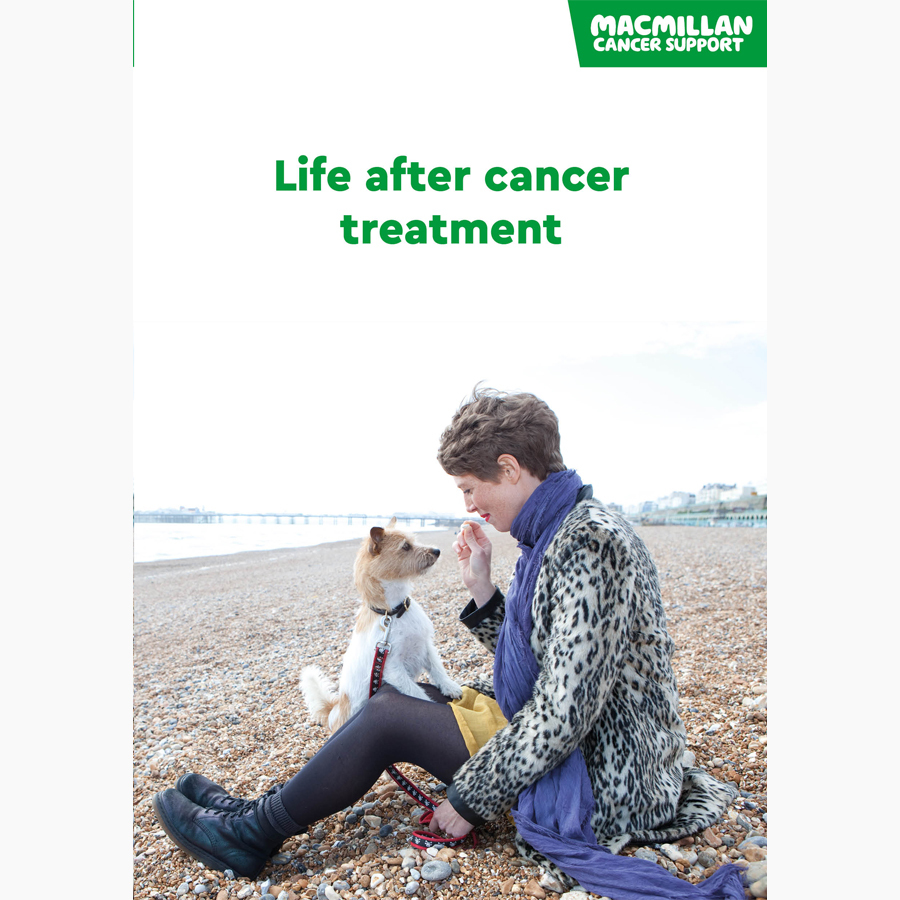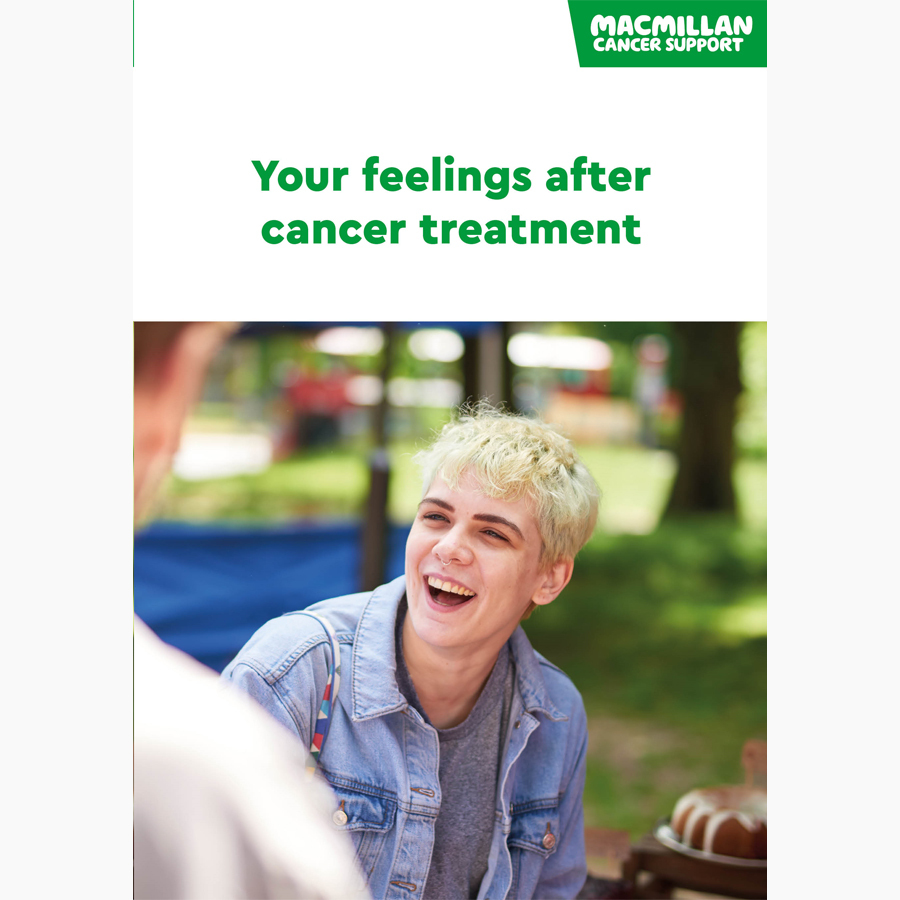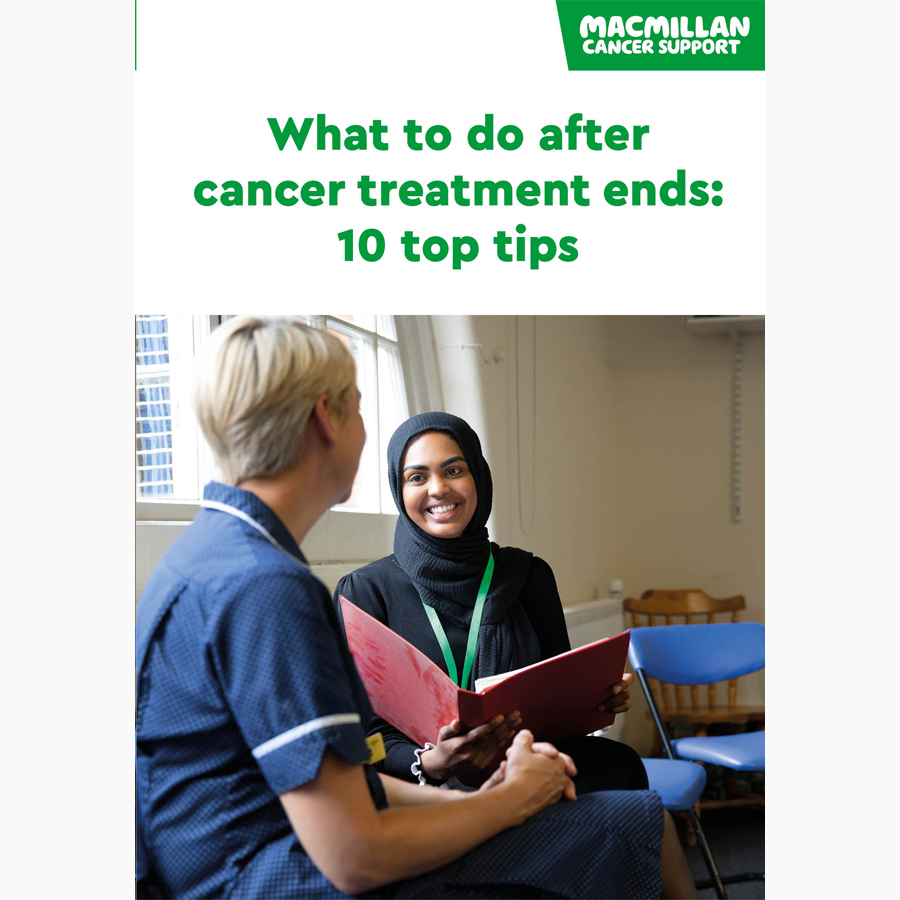Beginning to recover
How you may feel after finishing cancer treatment
You may feel ready to get on with life after cancer treatment. But it is also common to have mixed feelings. You may have days when you feel anxious or uncertain about the future. Or you may feel less positive about your health. You may feel tired from dealing with your emotions.
Many people find it hard at first not meeting with their cancer team as often. It is important to remember that you can contact them if you need to.
You can also talk to your GP about anything that is worrying you, or if you need more support. You could also visit a local cancer well-being and information centre.
The time after treatment is a period of change. You are finding out what is now normal for you. Some people call this their ‘new normal’. You need time to find out and adjust to what this means for you. You may be thinking about getting back to the things you did before treatment. For example, this could include:
- going back to work or education
- doing hobbies or exercise again
- spending more time with family or friends.
Try not to expect too much of yourself too soon. Recovery is a gradual process and can have ups and downs. Some days you may feel better than others. You will need time to recover your physical strength.
You will also have to process what you have been through. Sometimes emotional recovery can take longer than physical recovery. But things should improve with time and the right support.
In the video below, Amuz talks about the mental health issues he had following his treatment for cancer. He found support from other people on the Online Community who were experiencing the same feelings. Visit our life after cancer forum to talk to people who have finished treatment for cancer, share your experience, and ask an expert your questions.
Booklets and resources
Changes to how you view your life
Your cancer experience may change your outlook on life. You may find you think about things differently now. You might think about what is important to you and change your priorities.
You may discover new interests or make certain lifestyle changes. This could be to improve your well-being or to find ways of reducing stress.
Self-management
Self-management means taking an active role in your own care. This may help you feel more in control of what is happening to you. You may already be doing some of the things we mention here, and you may feel you are as involved as you want to be.
When self-managing, you work with your cancer team to improve your health and well-being. This means learning more about your condition and how it affects your life. It is important to know when you need support or information, and who or where to get it from. You need to be able to plan ahead and set goals for the future.
Your cancer team can give you lots of information. They can help you find the best people to talk to when you need support or advice.
Your healthcare team can help you with self-management. They may know about training courses that can help you manage your health. These are usually free.
Help to Overcome Problems Effectively (HOPE) is a course to help people after cancer treatment. It was developed by Hope for the Community and Macmillan Cancer Support. It is a 6-week self-management course that is run online.
Your local Macmillan Information and Support Centre can tell you if there are any local courses. Find your nearest Information and Support Centre by searching for support in your area or call the Macmillan Support Line for free on 0808 808 00 00.
Related pages
Setting goals
Try not to rush things. Think about your recovery as a set of small, achievable goals that you can work towards. For example, this could be going for a walk when you feel able or eating healthily most days. You can be flexible with yourself.
How long it takes to get back to doing everyday things usually depends on:
- the type of cancer
- your treatment
- your general health.
Try not to rush things. Think about your recovery as a set of small, achievable goals that you can work towards. For example, this could be doing some gentle exercise like going for a walk when you feel able. Or it could be trying to eat healthily most days.
You can be flexible with yourself. To start, you may want to think about setting short-term goals. Once you are ready, you can think about some longer-term goals you would like to achieve.
Setting goals and working towards them can have different benefits. They help you focus on what you can do and may help you feel more in control.
As you achieve a goal, your confidence will grow. You might also want to reward yourself for your hard work. Try not to be upset if you miss some of your goals. What is important is that you are trying. The HOPE course has support for people setting goals after cancer treatment.
You may need to push yourself to do things you feel less confident about. Start with simple things like meeting up with family or friends. Over time, you will get back into the routine of everyday life.
Other things will start taking over and cancer will become less of a focus for you. As time passes, you may:
- go out more
- see friends
- go on holiday
- start doing hobbies again
- go back to work.
About our information
This information has been written, revised and edited by Macmillan Cancer Support’s Cancer Information Development team. It has been reviewed by expert medical and health professionals and people living with cancer.
-
References
Below is a sample of the sources used in our after treatment information. If you would like more information about the sources we use, please contact us at cancerinformationteam@macmillan.org.uk
ESMO Expert Consensus Statements on Cancer Survivorship: promoting high-quality survivorship care and research in Europe. Published: 10 August 2022. Annals of Oncology (accessed April 2023).
NHS Personalised Stratified Follow Up (PSFU) Pathway in Cancer Care. Published 2022.
Macmillan Cancer Support. Providing personalised care for people living with cancer: a guide for professionals providing holistic needs assessments, care and support planning. Published October 2019. Available from: www.macmillan.org.uk
Date reviewed

Our cancer information meets the PIF TICK quality mark.
This means it is easy to use, up-to-date and based on the latest evidence. Learn more about how we produce our information.
The language we use
We want everyone affected by cancer to feel our information is written for them.
We want our information to be as clear as possible. To do this, we try to:
- use plain English
- explain medical words
- use short sentences
- use illustrations to explain text
- structure the information clearly
- make sure important points are clear.
We use gender-inclusive language and talk to our readers as ‘you’ so that everyone feels included. Where clinically necessary we use the terms ‘men’ and ‘women’ or ‘male’ and ‘female’. For example, we do so when talking about parts of the body or mentioning statistics or research about who is affected.
You can read more about how we produce our information here.







